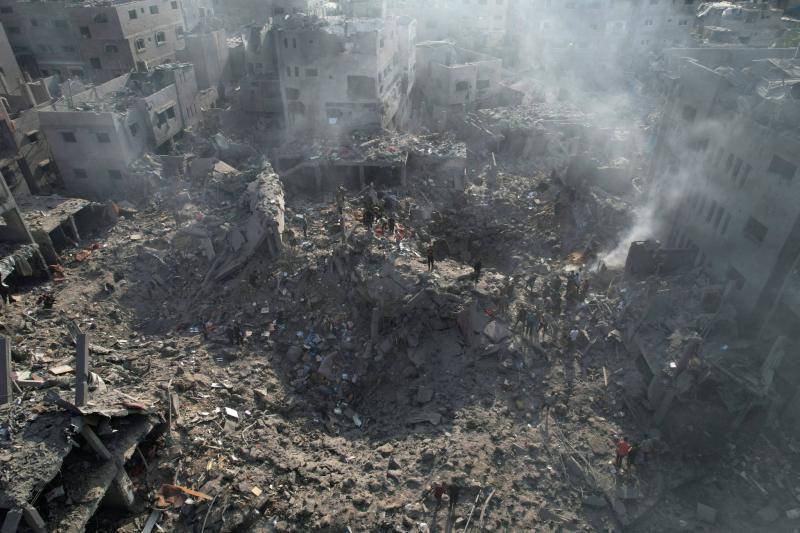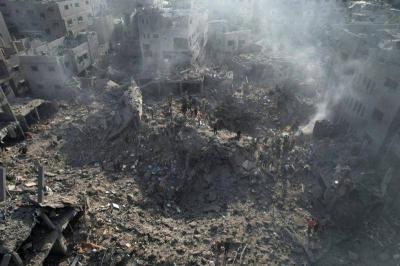After intense days of indirect negotiations in Cairo between Hamas and other Palestinian factions on one side and Israel on the other, mediated by Egypt, the United States, and Qatar, delegations left the Egyptian capital, including CIA Director William Burns, who departed on Thursday. Egyptian and American sources confirmed that discussions continue behind the scenes to bridge the gaps.
On Friday, the Egyptian Foreign Ministry announced that Minister Sameh Shoukry emphasized to U.S. Secretary of State Antony Blinken during a phone call the necessity of reaching a ceasefire agreement in the devastated Palestinian territory "as soon as possible," following reports from Israeli media about the collapse of the indirect negotiations held in Cairo.
This came just hours after Hamas stated that "the ball is entirely in Israel's court to reach a ceasefire agreement." They also indicated that Tel Aviv "rejected the proposal made by the mediators and raised objections on several central issues."
An Israeli official confirmed that the Israeli side presented its reservations to the mediators regarding Hamas's proposal for a prisoner release agreement. U.S. State Department spokesperson Matthew Miller explained that the U.S. is still in contact with Israel regarding the changes proposed to Hamas's ceasefire plan. However, he noted that "the work is extremely difficult," without providing further details.
Although not much information has been disclosed about the obstacles hindering an agreement during the talks in Cairo since last Tuesday, it has been reported that Hamas insists on a permanent ceasefire, whereas the Israeli delegation sought to replace the term with a sustainable ceasefire, despite the unclear distinction between the two expressions.
Hamas also insists on the withdrawal of Israeli forces from the entire Gaza Strip, which the Israeli side has repeatedly rejected. Furthermore, Israel's determination to invade Rafah in the southern Gaza Strip, after its forces took control of the Palestinian side of the Rafah crossing, has posed a significant impediment to reaching a consensus.




